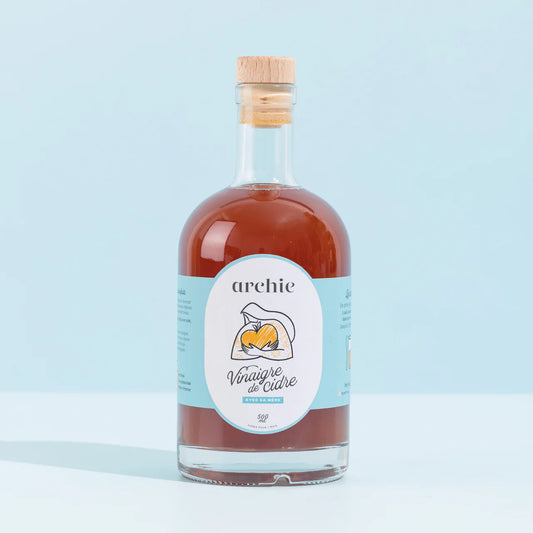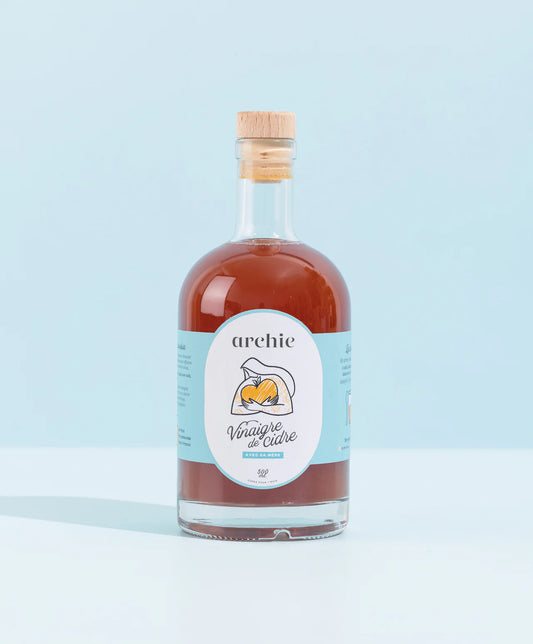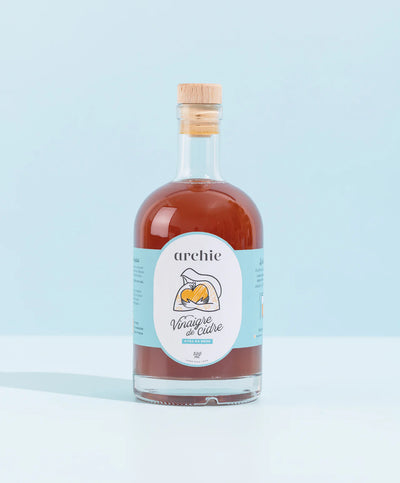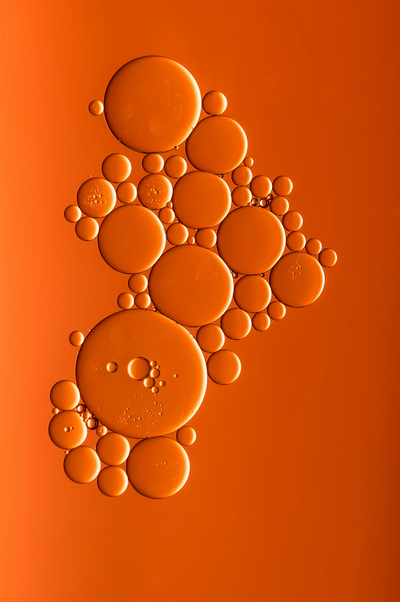Intimate dryness is an often overlooked topic that affects many women at different times in their lives and disrupts their well-being. Whether it is hormonal changes, stress or certain treatments, this problem can cause significant discomfort. Fortunately, natural solutions exist to relieve these symptoms. In this article, we will explore the causes and symptoms of vaginal dryness, present effective home remedies, and provide application tips to get the most out of them. We will also see when it is necessary to consult a health professional and how to prevent this inconvenience.
Here are 5 grandmother's remedies that will allow you to fight against intimate dryness. Discover in detail the benefits of each remedy in the article below.
What is intimate dryness?
Intimate dryness is characterized by a decrease in the natural lubrication of the vagina, which can lead to feelings of discomfort, burning or itching. This phenomenon, although often associated with menopause, can occur at any age and for various reasons.
Vaginal lubrication is essential for overall comfort and sexual health. It helps maintain the elasticity and hydration of vaginal tissues, making intercourse easier and reducing the risk of microtrauma. When this lubrication is insufficient, intercourse can become painful, and problems such as urinary tract or vaginal infections can occur more frequently.
Common Causes of Vaginal Dryness
The causes of vaginal dryness are multiple and can be linked to hormonal, psychological, medical or environmental factors.
Hormonal fluctuations
Estrogen levels play a crucial role in vaginal lubrication. Several situations can cause these hormones to drop:
Menopause : During menopause, estrogen production decreases significantly, reducing vaginal lubrication.
Postpartum and breastfeeding : After childbirth and during breastfeeding, estrogen levels may be low, which can lead to temporary vaginal dryness.
Hormonal contraception : Some birth control, especially progestin-only pills, can reduce estrogen levels and cause vaginal dryness.
Stress and anxiety
Chronic stress and anxiety can disrupt hormonal balance and affect vaginal lubrication. Stress hormones, such as cortisol, can influence estrogen levels and reduce the natural lubrication response.
Medicines and treatments
Some medications can have side effects that include vaginal dryness:
Antihistamines : Used to treat allergies, these medications can dry out mucous membranes, including those in the vagina.
Antidepressants : Some antidepressants can affect libido and vaginal lubrication.
Chemotherapy and radiation therapy : Cancer treatments can damage vaginal tissues and reduce lubrication.
Chemical irritants
The use of certain products can irritate the intimate area and disrupt natural lubrication:
Scented bath products and soaps : These products may contain chemicals that irritate the skin and vaginal mucous membranes.
Douching : Douching can upset the natural balance of bacteria in the vagina, leading to dryness and infections.
Signs and symptoms of intimate dryness
Symptoms of vaginal dryness can vary in intensity and include:
Burning or itching sensation : These sensations may be present constantly or intermittently.
Pain during intercourse (dyspareunia) : Vaginal dryness can make intercourse uncomfortable or even painful.
Irritation or redness : Vaginal tissues may become irritated and inflamed.
Frequent need to urinate : Vaginal dryness may be associated with frequent urinary tract infections, causing an increased need to urinate.
Grandma's remedies for intimate dryness
To relieve intimate dryness, several natural remedies can be effective. These solutions, often used for generations, can offer significant relief while being gentle on the skin and mucous membranes.

Apple cider vinegar: relieves itching
Apple Cider Vinegar is known for its antibacterial and antifungal properties. It can help balance vaginal pH, which can relieve itching, irritation, vaginal yeast infections , and urinary tract infections .
How to use it:
-
Dilute a tablespoon of cider vinegar in a glass of water.
-
Use this solution as once daily until symptoms improve.
Precautions:
-
Make sure to dilute the apple cider vinegar well.
-
Respect the maximum dose of 3 tablespoons per day.
Discover all the benefits of cider vinegar.

Olive or coconut oil: a natural lubricant
Among the most widely used home remedies, olive and coconut oils are recognized as natural alternatives to synthetic lubricants. They are moisturizing and soothing, helping to reduce dryness and improve comfort during sexual intercourse.
How to use it:
-
Apply a small amount of olive or coconut oil to the vaginal area during intercourse.
-
For daily hydration, apply a thin layer of oil before bed.
Precautions:
-
Use pure, unscented oils to avoid irritation.
-
Do a skin test before use to check for any allergic reaction.

Aloe vera: soothing and moisturizing
Aloe vera is known for its moisturizing and soothing properties. It can be used to reduce inflammation and discomfort associated with intimate dryness.
How to use it:
-
Apply pure aloe vera gel directly to the vaginal area.
-
Use it once or twice a day to maintain hydration.
Precautions:
-
Make sure the aloe vera gel is pure and free of chemical additives.
-
Avoid using aloe vera if you have an allergy to this plant.

Plain yogurt: to rebalance the flora
Plain yogurt, often used among grandmother's remedies, contains probiotics that can help restore the balance of vaginal flora and prevent infections.
How to use it:
-
Apply a small amount of plain yogurt (unsweetened and unflavored) to the vaginal area.
-
Leave on for 15 to 20 minutes, then rinse with lukewarm water.
-
Repeat this application once or twice a week.
Precautions:
-
Use only plain yogurt without sugar or additives.
-
Do not leave the yogurt on the skin for too long to avoid irritation.

Chamomile sitz bath: relaxation and calming
Chamomile has anti-inflammatory and soothing properties. A sitz bath with chamomile tea can help relieve irritation and discomfort.
How to use it:
-
Make a chamomile tea by boiling a few chamomile tea bags in water.
-
Allow the infusion to cool to a comfortable temperature.
-
Pour the infusion into a basin and sit in it for 10 to 15 minutes.
-
Repeat this sitz bath once or twice a week.
Precautions:
-
Make sure the brew is not too hot to avoid any burns.
-
Use pure chamomile tea bags, without additives or artificial flavors.
Application tips
Frequency of use of remedies
The effectiveness of natural remedies often depends on their regular and proper use. Here are some tips on how often to use each remedy:
Apple Cider Vinegar : Use daily as a vaginal rinse until symptoms improve.
Olive or Coconut Oils : Apply daily for moisturization or before intercourse as a lubricant.
Aloe vera : Use once or twice daily for continued hydration.
Plain yogurt : Apply once or twice a week to maintain the balance of vaginal flora.
Chamomile Sitz Bath : Take a sitz bath once or twice a week to soothe irritation.
Tips for safe use
To ensure safe and effective use of natural remedies, follow these tips:
Test before use : Before applying any remedy to the vaginal area, perform a skin test on a small area of skin to check for any allergic reaction.
Use natural products : Make sure the products used are pure and free of chemical additives. Avoid products that are scented or contain artificial preservatives.
Avoid Irritants : If you experience irritation or an allergic reaction to any remedy, stop using it immediately and rinse the affected area with lukewarm water.
When should you consult a professional?
Warning signs
It is important to consult a healthcare professional if you experience the following warning signs:
Persistent or severe symptoms : If vaginal dryness persists despite using natural remedies or becomes very uncomfortable.
Severe pain : Any severe or persistent pain in the vaginal area or during intercourse requires medical evaluation.
Bleeding : If you notice any unusual bleeding, seek medical attention immediately.
Recurring infections : Frequent urinary or vaginal infections may be a sign of underlying imbalance requiring medical treatment.
The role of the gynecologist
A gynecologist can provide a comprehensive evaluation of your symptoms and suggest appropriate treatment options. Here's how a gynecologist can help:
Accurate diagnosis : The gynecologist can determine whether intimate dryness is due to hormonal fluctuations, an underlying medical condition, or another factor.
Hormonal treatments : For postmenopausal or postpartum women, hormonal treatments, such as estrogen creams or rings, may be prescribed to improve lubrication.
Personalized advice : A gynecologist can provide advice on best intimate hygiene practices and recommend products specifically suited to your needs.
How to prevent intimate dryness?
Hygiene and daily care
Maintaining good personal hygiene is crucial to preventing vaginal dryness. Here are some practical tips:
Use gentle products : Choose unscented and hypoallergenic soaps and bath products.
Avoid douching : Douching can disrupt the natural balance of bacteria and cause dryness.
Wear cotton underwear : Cotton underwear allows better air circulation and reduces the risk of irritation.
Change your menstrual protection regularly : During menstruation, change your tampon or sanitary towel regularly to avoid irritation.
The importance of nutrition and hydration
A balanced diet and good hydration can play an important role in preventing intimate dryness.
Foods rich in phytoestrogens : Flaxseeds, soybeans, and legumes contain phytoestrogens that can help maintain estrogen levels.
Omega-3 fatty acids : Eat foods rich in omega-3s, such as oily fish (salmon, mackerel) and walnuts, to help maintain healthy mucous membranes.
Hydration : Drink at least 1.5 to 2 liters of water per day to ensure good general hydration and prevent dryness of the mucous membranes.
Avoid food irritants : Reduce caffeine and alcohol intake, as these substances can dehydrate the body and worsen vaginal dryness.
By following these tips and using the right natural remedies, you can effectively manage vaginal dryness, improve your daily comfort, and regain your well-being. However, never hesitate to consult a healthcare professional for personalized advice tailored to your situation. Vaginal dryness is a treatable condition, and with the right strategies, you can regain a fulfilling and comfortable intimate life.

























